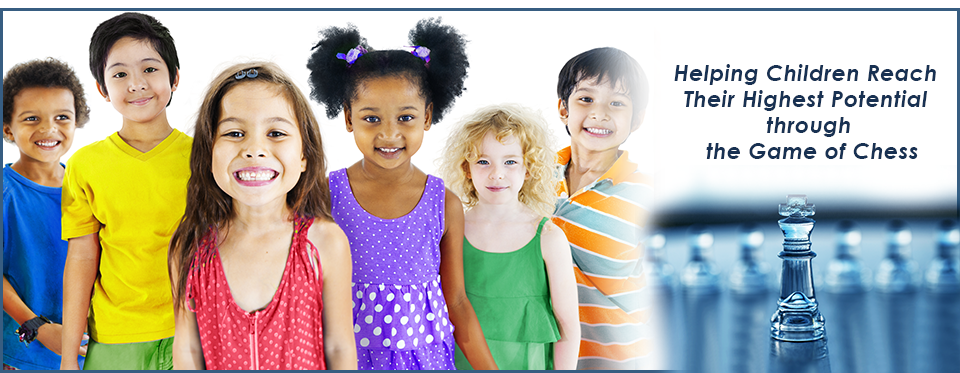|
|
Chess Tournaments and Group Classes!
A USCF rated chess tournament is held every Saturday online. This is a Scholastic Tournament (Children 4-17): 11a-1p PST/ 2p-4p EST. The tournament begins with a group class! Recommended for beginners up through a rating of approximately 1400. $20 for this event. 10% off for siblings! Register here: https://forms.gle/29LmMRnJ35mZBTwf6
Private Chess Lessons
Alec's Chess Club offers daily private lessons online for $50 per hour. Monday-Saturday 8a-8p PDT/ 11a-11p EDT. Homeschoolers get 20% off for Private Lessons. ($40 per hour.)
Lessons conducted primarily online. However, a limited number of lessons are available at the Club in Charlotte, NC or at the student's home (minimum additional fee of $25 for home visits.)
Register here: https://forms.gle/8GnchPDnzgVWwwhYA
Homeschool Group Chess Lessons
If your kids are homeschooled...group lessons are available every Monday 10a-12p PST/ 1p-3p EST. (excluding holidays) $20 for this event. 10% off for siblings!
Register here: https://forms.gle/29LmMRnJ35mZBTwf6
To schedule an appointment or find out more just call (818) 220-0257 or fill out the simple form located below. If you have questions please don't hesitate to ask!
|
"Alec is a great teacher and person. He has taught my daughter for a few years now and I just started taking lessons myself. He is patient and thorough with his teaching as well as making it fun. My daughter and I look forward to the lessons every week and come away having enjoyed it while learning." - Doron (Parent)
For more testimonials, just click here:
http://www.alecschessclub.com/Chess-Lessons-Testimonials.html
The Many Benefits of Chess Lessons for Children
• Chess Lessons Increase problem-solving skills. A chess match requires fast thinking and problem-solving on the fly because your opponent is constantly changing the parameters. A study indicated that those who learned to play chess scored significantly higher on standardized tests compared to those who did not play chess.
• Chess Lessons Improve reading skills. playing chess causes increased performance in reading. In a district where the average students tested below the national average, kids from the district who played the game tested above it.
• Chess Lessons Teach planning and foresight. One of the last parts of the brain to develop during adolescence is the prefrontal cortex, the area responsible for judgment, planning and self-control. Because playing chess requires strategic and critical thinking, it helps promote prefrontal cortex development and helps teenagers make better decisions in all areas of life, perhaps keeping them from making an irresponsible, risky choice.
• Chess Lessons spark your creativity. Playing chess helps unleash your originality, since it activates the right side of the brain, the side responsible for creativity. One four-year study had students from grades 7 to 9 play chess, use computers, or do other activities once a week for 32 weeks to see which activity fostered the most growth in creative thinking. The chess group scored higher in all measures of creativity, with originality being their biggest area of gain.
• Chess Lessons exercise both sides of the brain. When chess players were asked to identify chess positions and geometric shapes, both the left and right hemispheres of the brain became highly active. Their reaction times to the simple shapes were the same, but the experts were using both sides of their brains to more quickly respond to the chess position questions.
• Chess Lessons potentially raise your IQ. A study of students produced significant rises in the IQ scores of both boys and girls after four months of chess instruction.
• Chess Lessons promote brain growth. chess stimulates the growth of dendrites, the bodies that send out signals from the brain’s neuron cells. With more dendrites, neural communication within the brain improves and becomes faster. Think of your brain like a computer processor. The tree-like branches of dendrites fire signals that communicate to other neurons, which makes that computer processor operate at a fast, optimal state.
• Chess Lessons optimize memory improvement. Chess players know that playing chess improves your memory, mainly because of the complex rules you have to remember, as well as the memory recall needed when trying to avoid previous mistakes or remembering a certain opponent’s playing style. Good chess players have exceptional memory performance and recall. A study found that students who had never before played chess improved their memories and verbal skills after playing.
• Chess Lessons help increase self-discipline. Self-discipline is perhaps one of the most important skills to learn. The more self-disciplined we learn to be, generally speaking, the better our lives will be overall. Chess is an excellent training ground for learning to be more self-disciplined. Because if you really want to win... you have to work hard at it!
But Chess Lessons are not just great for children. All of the above benefits apply to adults as well, along with some amazing additional benefits.
• Chess Lessons help prevent Alzheimer’s. As we age, it becomes increasingly important to give the brain a workout, just as you would every other major muscle group, in order to keep it healthy and fit. A recent study found that people over 75 who engage in brain-games like chess are less likely to develop dementia than their non-board-game-playing peers. The saying “use it or lose it” certainly applies here, as a sedentary brain can decrease brain power. All the more reason to play chess before you turn 75.
• Chess Lessons improve recovery from stroke or disability. Chess develops fine motor skills in individuals who have disability or have suffered a stroke or other physically debilitating accident. This form of rehabilitation requires the motion of chess pieces in different directions (forward, backward, diagonally forward motion, diagonally backward motion), which can help develop and fine tune a patient’s motor skills, while the mental effort required to play the game can improve cognitive and communication skills. Playing can also stimulate deep concentration and calm, helping to center and relax patients who are experiencing different degrees of anxiety.
|

